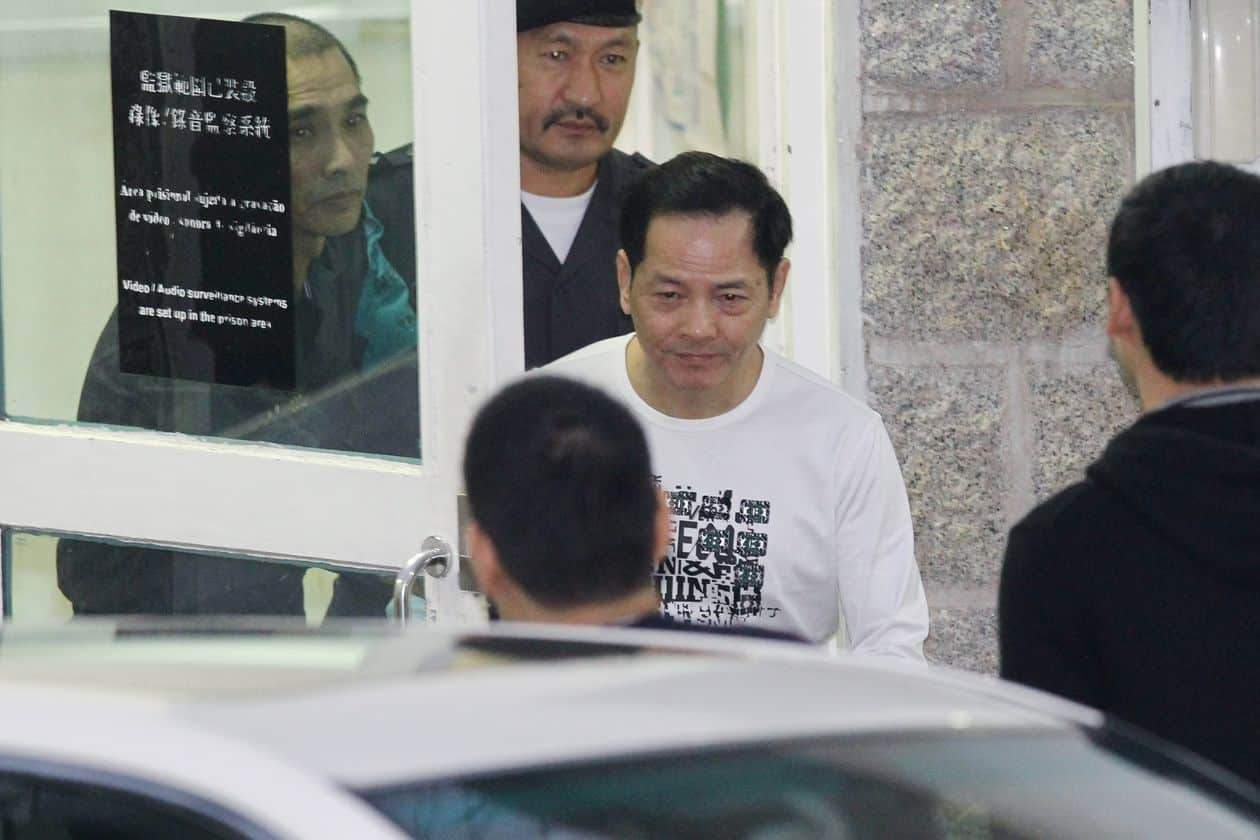U.S. Sanctions Gangster Known as ‘Broken Tooth’ for Corruption in China’s Belt and Road

The Trump administration, using its anticorruption powers, sanctioned three men including a convicted Chinese gangster who has set up businesses seeking to benefit from Beijing’s flagship transcontinental infrastructure-building program.
Wednesday’s action against Wan Kuok Koi, also widely known as “Broken Tooth,” comes as the administration escalates a pressure campaign against China in its last months in office.
The U.S. Treasury Department accused Mr. Wan of using business and other activities to try to legitimize the organized-crime gang he has reputedly led and piggyback on China’s Belt-and-Road Initiative to build infrastructure across Eurasia and other parts of the world.
The U.S. Treasury also sanctioned a top Liberian politician for allegedly bribing judges and other people and a former senior Kyrgyz official for alleged involvement in money-laundering. The sanctions all came under the so-called Global Magnitsky powers, named after a Russian whistle-blowing lawyer who died in a Moscow jail after accusing the government of corruption.
The Chinese Embassy in Washington didn’t immediately respond to a request for comment, nor did the Kyrgyz and Liberian missions to the United Nations.
The U.S. Treasury’s blacklisting of Mr. Wan serves the administration’s broader effort to try to discredit China’s communist government amid growing tensions between the two world powers over global influence, trade, technology and national security issues.
Wednesday’s action marks the third straight day of sanctions levied against Chinese officials, companies and citizens, as the Trump administration casts the Beijing as a malign global influence and national security risk.
Last week, the Department of Defense also added several major Chinese state-owned companies, including China National Offshore Oil Corp. and Semiconductor Manufacturing International Corp. to its list of companies identified as Communist Party firms supporting the country’s military. That blacklisting prohibits U.S. military contracting and exposes the firms to potential sanctions by the Treasury and export controls.
The Treasury Department announcement, timed for International Anti-Corruption Day, alleged that Mr. Wan tried to associate himself with Beijing’s infrastructure program to further illegal activities. It didn’t accuse the Chinese government of knowledge of his actions.
Mr. Wan rose to infamy amid a surge of gang violence in the gambling enclave of Macau in the late 1990s. He was arrested shortly before Portugal handed the territory on China’s southern coast back to Beijing in 1999 after some 400 years as a colony. Mr. Wan, who U.S. officials say heads the 14K Triad organized-crime group, spent 14 years in a Macau prison for triad membership and money laundering, among other crimes.
More recently Mr. Wan surfaced as a businessman in Malaysia, Cambodia, Palau and Myanmar.
In its sanctions announcement, the Treasury Department said Mr. Wan controls an organization based in Cambodia called the World Hongmen History and Culture Association, which officials said was an effort by the 14K Triad to legitimize itself.
U.S. officials said the association, which was also blacklisted along with two other groups officials said are owned or controlled by Mr. Wan, is establishing a business network involved in cryptocurrency, real estate and most recently a security company specializing in protecting Belt-and-Road projects.
The Treasury Department linked Mr. Wan to the Hong Kong-based Dongmei Group, a key investor in a China-backed special economic zone in Myanmar, a neighbor to China that Beijing has earmarked for Belt-and-Road projects. The country has been wracked by what the U.S. calls Burmese government-directed ethnic cleaning.
“This continues a pattern of overseas Chinese actors trying to paper over illegal criminal activities by framing their actions in terms of China’s Belt and Road Initiative (BRI), the China Dream, or other major initiatives” of the Communist Party, Treasury said.
Chinese officials have in the past rejected accusations by the Trump administration that Beijing uses corruption and coercion as part of its statecraft, saying the government has implemented a strict anticorruption drive. Chinese President Xi Jinping last year announced a recalibration of the infrastructure program, promising to curb corruption and control lending, in an indirect acknowledgment of criticism from some developing-country borrowers and good-government groups.
Still, the Belt-and-Road program, a signature initiative for Mr. Xi, opened spigots of money from Chinese financial institutions, drawing in entrepreneurs and self-styled commercial ambassadors seeking to invest around the world in line with Beijing’s priorities. In many cases, it is unclear whether these people operate with Beijing’s approval.
Shanghai oil company CEFC China Energy Co., for example, was led by a military-connected entrepreneur named Ye Jianming, who met leaders of nations around the world and pledged to invest in their energy and financial sectors. When one of CEFC’s top deputies was arrested and later found guilty of corruption-related charges in the U.S. the business empire virtually collapsed. Mr. Ye himself was detained in China months later, in early 2018, for reasons the government never explained. Mr. Ye’s circumstances are today unknown but CEFC is virtually out of business.
Wednesday’s sanctions block any assets the targets may have within U.S. jurisdictions, prevent their travel to the U.S. and can complicate their business dealings overseas as other banks and firms shy away from transactions with blacklisted entities.
The U.S. also sanctioned the chairman of the Liberian Senate’s Judiciary Committee, accusing Sen. Harry Varney Gboto-Nambi Sherman of corruption, bribing judges and politicians, including for a British mining company’s venture to secure the country’s last iron ore assets. Mr. Sherman didn’t immediately respond to an emailed request for comment.
Former deputy of Kyrgyz Customs Service, Raimbek Matraimov, was blacklisted by Treasury for allegedly facilitating a $700 million money-laundering operation. Mr. Matraimov, who couldn’t immediately be reached for comment, was accused of using his position to help a group of Chinese companies to import goods into Kyrgyzstan without paying any customs fees.
Photo: Wan Kuok-koi, who U.S. officials say heads the 14K Triad organized-crime group, was sanctioned by the Trump administration. - EDWARD WONG/SOUTH CHINA MORNING POST/GETTY IMAGES
Link: https://www.wsj.com/articles/u-s-sanctions-chinese-man-close-to-beijing-initiative-for-alleged-graft-11607528444




